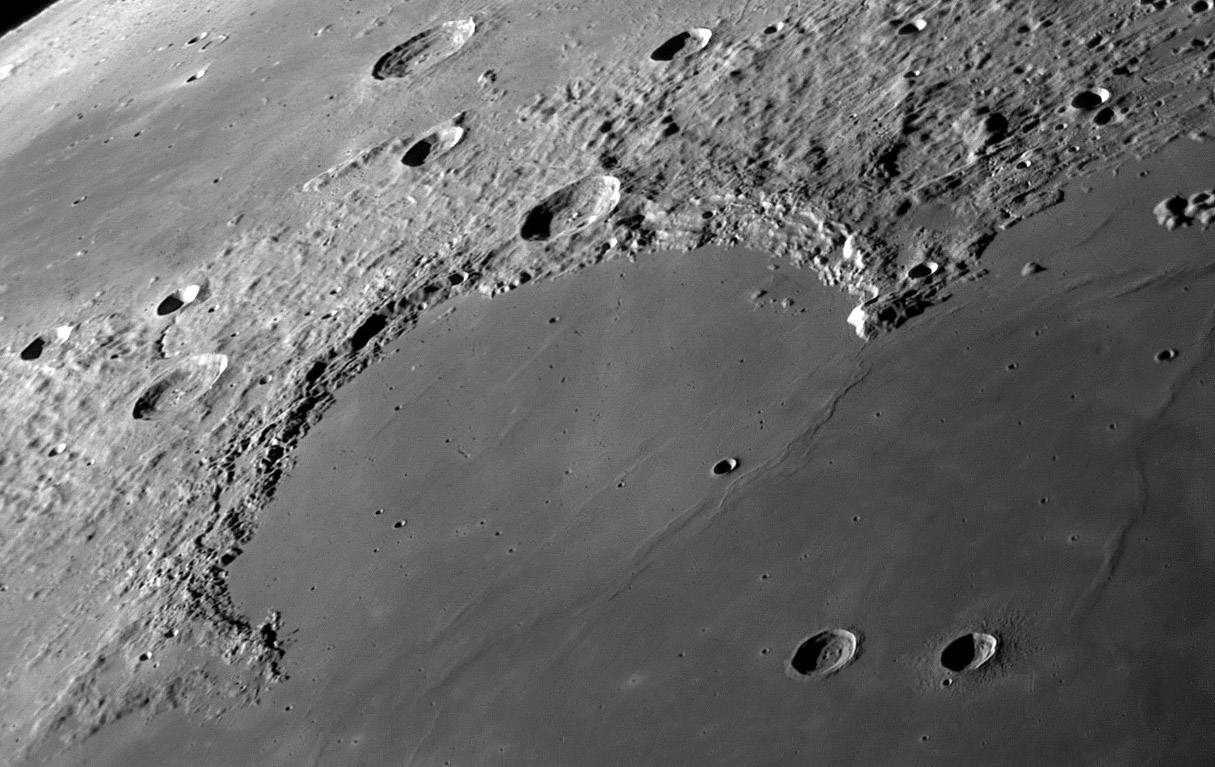
image by Mike Wirths
Now if you look out the porthole to your left you will see one of the most marvelous sights on our Once Around the Moon orbital tour. Romantically named Sinus Iridum - the Bay of Rainbows - this is actually one-half of a 260 km wide impact crater, whose near side has disappeared. Most likely it was faulted downward as the Imbrium Basin interior subsided when mare lavas filled it, and covered the lowered rim. Notice the crater - Bianchini - that cuts into the rim of Sinus Iridum. Do you see that the impact of Bianchini caused a landslide of material that extended the Iridum wall out onto the lava floor? Also look at all the small craters pockmarking the Iridum bay - usually you only see the 4-5 largest ones but with our close approaching tourship we see dozens more! Look at the faint line of brightning that runs diagonally across the bay toward Bianchini - see the small pits along it? This is a ray but what was its source? Could it be Copernicus, more than 1000 km to the south? Finally, before we lose sight of this fascinating region look at the two craters Helicon and le Verrier (half in shadow) at the front right of the porthole. Although their rims look equally fresh, le Verrier is younger because its ejecta textures the surrounding mare surface. Helicon fomed earlier for all of its ejecta is buried by the latest lavas. OK folks. Thanks for coming on our quick orbital tour of the Moon. If you have time before leaving for Mars I encourage to take the Down the Rille tour at Hadley Rille. Now please float back to your seats and strap yourself in for our landing at Plato Base.
P.S. Is that a faint rille at the upper right just left of the end of Montes Recti? It doesn’t show on the Lunar Orbiter IV image - is this the discovery image?
Technical Details:
18″ Starmaster + camera Lumenera Infinity 2-2 + 2.5X Powermate barlow + red filter; Stack of 252 images; Registax 3 MAP processing (50 points).
Related Links:
Rükl charts 10
You can support LPOD when you buy ANY book from Amazon thru LPOD!
COMMENTS?
Register, and click on the Discussion tab at the top of the page.



